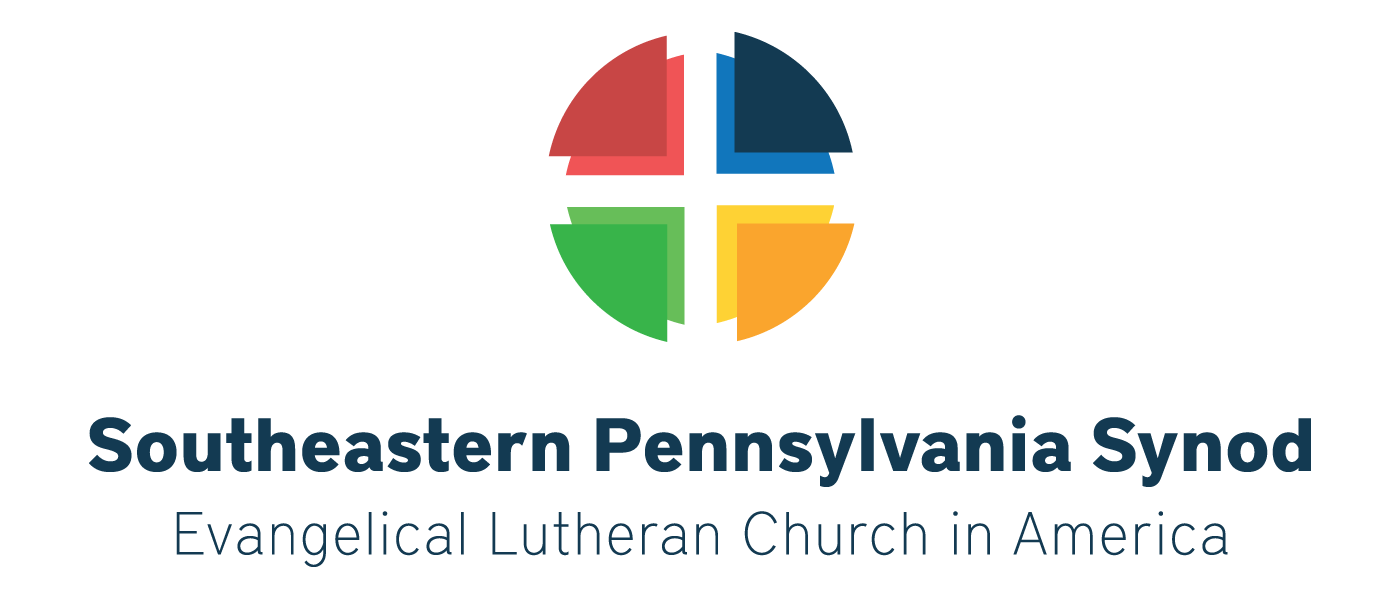Report a Misconduct
The ELCA and the Southeastern Pennsylvania Synod take misconduct in any form seriously. If you or someone you know has experienced misconduct, please contact Bishop Penman or the ELCA immediately.
Where to report clergy sexual misconduct:
Contact Southeastern Pennsylvania Synod Bishop Bryan J. Penman at 267-323-3756, or email.
Contact ELCA Director of Misconduct Prevention Kendra Stea at 773-380-7142, or email.
Called to be a safe place
Addressing sexual misconduct in our church
All forms of sexual misbehavior by clergy and lay leaders with church members are unacceptable within the life of the church. The church should be a safe place where people can worship, learn, work, love and receive care in a manner that is free from sexual misconduct.
Early in the life of the ELCA, this church expressed clearly its intention to take whatever measures it could to help prevent sexual abuse and misconduct within the ELCA. In other words, the church is called to be a safe place.
Reporting misconduct
Reporting child abuse
In the United States most states require allegations of abuse against a minor to be reported immediately to state authorities. The ELCA encourages immediately reporting to the civil authorities all instances of child abuse regardless of personal confidentiality issues. Each state has a different mandatory reporting process. You should call local law enforcement authorities or go to your state government website and find the appropriate office for reporting child abuse.
To report suspected child abuse go to www.compass.state.pa.us/cwis or call 1-800-932-0313
PA Child Protective Law (PA Act 31)
At the end of 2014 new laws took effect that required all employees and volunteers working with children to receive background checks. Check your copy of all clearances for renewal dates.
Please check out http://keepkidssafe.pa.gov/resources/clearances/index.htm for links to the three necessary background clearances.
How much do the clearances cost?
The PA State Police criminal history clearance costs $22.
The Child Abuse clearance costs $13.
The FBI federal criminal history with fingerprints clearance costs $24 through the Department of Human Services
How often do I need to renew my clearances?
Clearances must be obtained every 60 months. Any employee with current clearances issued prior to July 1, 2015, must renew their clearances within 60 months from the date of their oldest clearance.
For answers to additional questions that you may have go to: http://keepkidssafe.pa.gov/cs/groups/webcontent/documents/document/C_135249.pdf
Mandatory Reporters
Along with required background checks every 5 years the Child Protection Law 2014 also created a new responsibility that all of our Rostered leaders, church employees having responsibility for children and volunteers over the age of 18, working with children and youth to be mandated reporters if they became aware of or suspected abuse or neglect toward a child. If your employees and/or volunteers have not been informed or trained in what this requires now is as good a time as any to make that happen.
On-Demand Online Training is highly recommended for all Rostered leaders and for all employees working in the church. This is a self-paced Mandated Reporters Training
Although the best way to receive training on recognizing and reporting child abuse and neglect is through interactive, face-to-face training, PFSA offers an online alternative for mandated reporters in both English and Spanish. The online training is self-paced; participants should allow themselves at least three hours to complete the training.
“Recognizing and Reporting Child Abuse” is appropriate for all mandated reporters. The training is specifically approved by the Department of State for licensure or license renewal in health-related occupations (Act 31) and by the Department of Education (Act 126) for school personnel (Act 48 credits).
- When ready to begin type in all fields with participant’s information, then enter credit card information. (Name must be participant’s name.)
- Select language of preference (English or Spanish) when prompted, after entering credit card payment information.
- Audio is required for some portions of this training.
- You can stop and restart training using the link in the email that will be sent to you after entering payment information. Progress is saved incrementally.
- If you have any technical issues during this training, please contact our office at info@pa-fsa.org.
Total Cost: $30.00 3 CEs
Other helpful information about the law and reporting abuse comes from the Pennsylvania Family Support Alliance (PFSA) offers training is approved by the Departments of Human Services, Education and State and meets the requirements under Act 126 and Act 31. If you are interested, you can visit their site at https://www.pa-fsa.org/
Conferences or cluster of churches may want to host a On Site Mandated Reporters Training for 10 -50 participants. This is a 3 hour live course for Recognizing and Reporting Child Abuse
To learn more about our legal requirement, click here for information from Lutheran Advocacy Ministry in PA (LAMPa)
Safety Policies
It is recommended that all congregations should update their Safe Church Policies to reflect the changes in the law.
- Safety policy for Synod youth events
- Southeastern Pennsylvania Synod Misconduct Policy
- ELCA Definitions and Guidelines for Discipline
Reporting sexual misconduct in the ELCA
Sexual misconduct committed by congregational employees should be reported to the pastor, council president, or other congregational officer. Congregations are encouraged to have policies in place for addressing allegations against church staff and to respond with compassion and care to anyone reporting abuse by clergy or lay leaders.
Synods of this church usually have responsibility for addressing allegations of clergy sexual abuse, administering appropriate discipline, and responding to those who have been harmed. Procedures and policies in place in the synods of this church provide for compassionate and resolute response to those wounded by clergy sexual misconduct, and appropriate discipline for those who offend.
Where to report clergy sexual misconduct:
Contact ELCA Director, Misconduct Prevention Kendra Stea at 773-380-7142, or email.
Contact Southeastern Pennsylvania Synod Bishop Bryan J. Penman at 267-323-3756, or email
What is misconduct?
Sexual misconduct: Federal and state laws make distinctions among various types of sexual misconduct, such as “sexual harassment,” “sexual abuse,” and “sexual assault.” Similarly, the governing documents of the ELCA define what types of sexual misconduct can result in a pastor or other rostered person facing ecclesiastical discipline. These distinctions should not concern a person who is troubled about the sexual conduct of a pastor or rostered layperson. This church is concerned about all types of sexual misconduct by these individuals, regardless of whether or how the misconduct is characterized by the law or by the governing documents of the ELCA.
Any time a minister uses his or her position in the church for personal sexual gratification it is a misuse of the pastoral office and a betrayal of the nature of the pastoral relationship. Any sexual misconduct committed by a rostered church leader should be reported to the appropriate synod, including, but not limited to, any sexual contact between the rostered person and a congregant, counselee, employee or volunteer. It should be noted that the synod may not be able to assume primary responsibility for addressing all allegations of sexual misconduct. For example, law enforcement authorities would have responsibility for investigating and addressing criminal allegations, while congregations would have to deal with accusations of sexual harassment by the congregation’s employees. Nevertheless, the appropriate synod office should be notified of all cases of inappropriate sexual behavior in the congregation.
Any suspected sexual contact with a minor must be reported to the appropriate governmental agency as required by state laws concerning reporting of child abuse.
ELCA resources
Safe Connections: What parishioners can do to understand and prevent clergy sexual abuse.
Healthy relationships of trust and respect between laity and clergy are essential for carrying out the mission of the church. This resource can assist in creating and maintaining strong, creative and healthy relationships of integrity and safety, for the sake of our common ministry to the gospel of Christ Jesus and to the people of God.
Healing in Congregations after clergy sexual abuse: A resource to assist synodical leaders and local congregations.
This resource is offered to synodical bishops and their staffs, to other clergy and lay leaders, interims and “after pastors,” including those who will provide on-site leadership for a period of time in congregations after the incidence of clergy sexual abuse.
An ELCA Strategy for responding to sexual abuse in the church:
A resource of shared learning of synods, seminaries, congregations, colleges, social ministry organizations and the churchwide expression.

